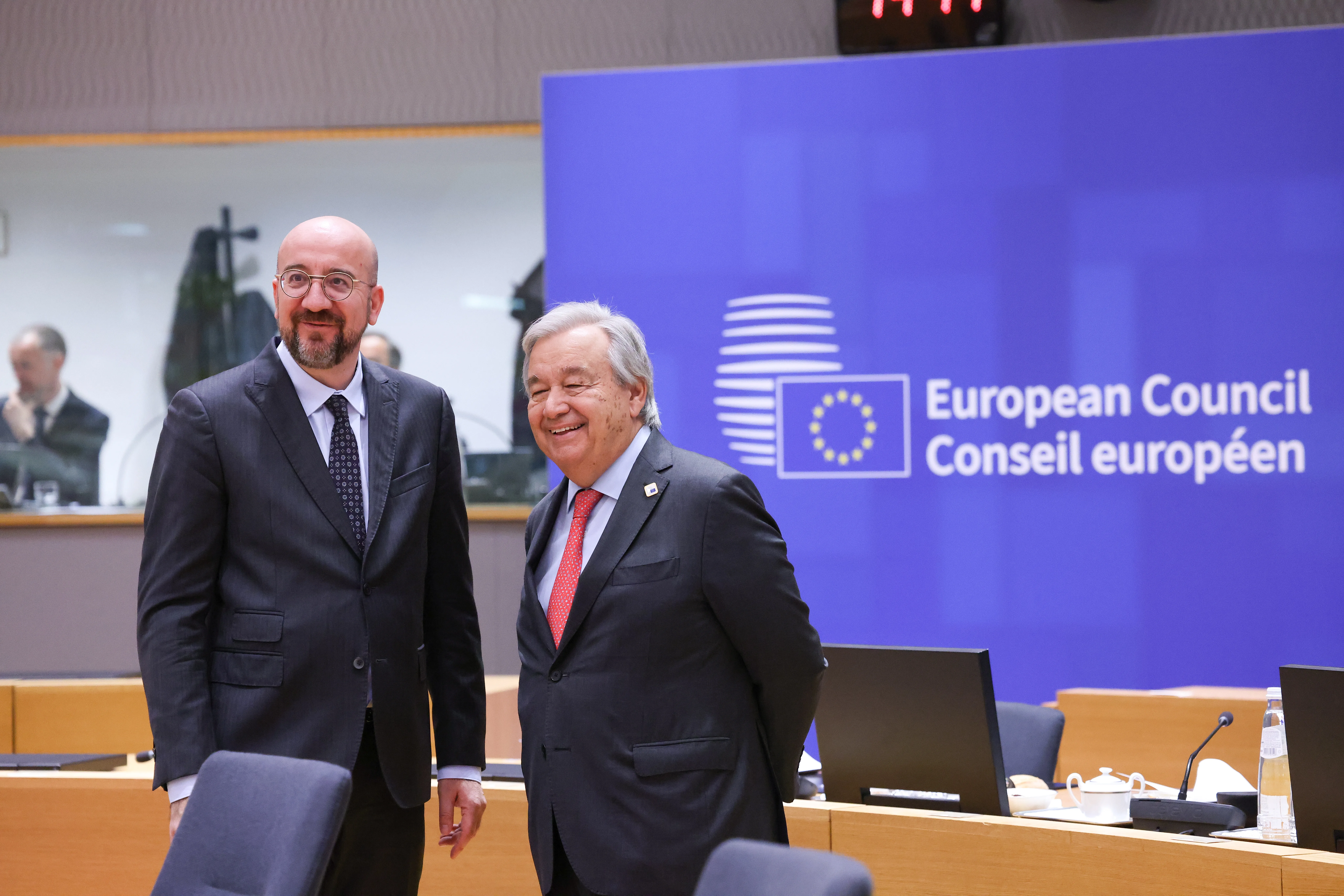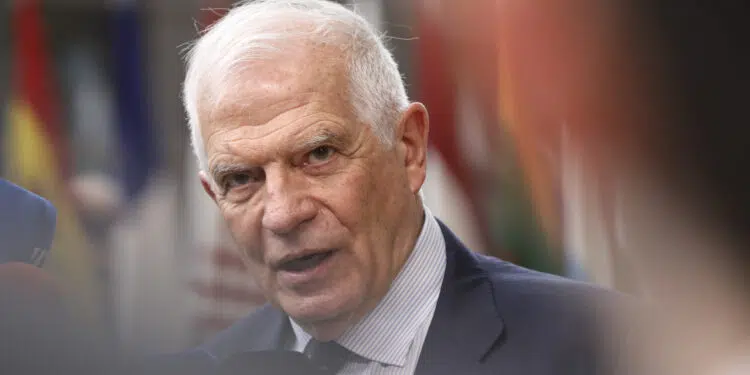Brussels – What is happening in Gaza is “the failure of humanity.” The EU High Representative for Foreign Affairs, Josep Borrell, who for five months has been the most critical voice in the EU institutions on Israeli military operations to crush Hamas, has not run out of words yet. Those chosen today, as he arrives at the European Council in Brussels, are among the heaviest. And they do not come by accident: the heads of state and government are being called upon to go beyond the position on the conflict agreed in October. And at stake is the call for “an immediate humanitarian pause leading to a sustainable ceasefire,” reads the latest version of the summit conclusions.
It may still seem too little in light of the calls for a cessation of hostilities that have been multiplying for months by a large part of the international community. However, the conflict in Gaza has demonstrated the difficulty of the 27 countries in singing in unison when it comes to foreign policy. “I am happy that today the Council approves conclusions that go far beyond the previous ones from October,” Borrell confirmed. In addition to perfecting the call to put down weapons, national governments will reiterate the call for hostage release and “show strong concern” for the situation of the civilian population.
An “unacceptable” situation, according to the head of EU diplomacy. Over 31 thousand victims and the risk of an imminent famine “are not a humanitarian crisis, but the failure of humanity.” Which, for Borrell, has only one way out: “Israel must respect the civilian population and allow aid into Gaza.” Visibly displeased, Borrell listed everything Tel Aviv is not doing: “There is an airport an hour’s drive from where we are parachuting aid, but it is closed. We are building a port, even though there is already a port in Gaza. But it’s closed. And the land borders are open so little that supplies are not coming in.”
To convince the heads of state and government that it is time to send a strong message to Tel Aviv, UN Secretary-General Antonio Guterres spoke at the summit’s opening. A senior EU official reported a two-and-a-half-hour conversation between the leaders and the UN secretary. “Positive, frank,” in which the 27 fully supported Guterres’ concerns. Who took stock of the situation on the Palestinian Refugee Agency (Unrwa) and the distribution of humanitarian aid. EU leaders should reaffirm at the summit that “the services provided by Unrwa in Gaza and throughout the region are essential.”

“We live in a chaotic world, with superpowers fighting each other and situations of impunity where countries or armed groups think they can do whatever they want because they are not accountable,” Guterres said upon his arrival in Brussels. Reiterating the principles that guide international law, he insisted on the importance of dispelling any doubts about the application of double standards in Ukraine and Gaza. “The same reasons why we believe that a peace in Ukraine fully in line with international law is essential, we believe that a ceasefire in Gaza is necessary.” Similarly, “just as we condemned the Hamas attacks of Oct. 7, we condemn the fact that we are witnessing an unprecedented number of civilian casualties in Gaza.”
A breakthrough could come from New York’s glass palace itself: the United States has submitted a draft resolution to the UN Security Council in which, for the first time, Washington does not put the release of hostages ahead of the ceasefire but puts them on the same footing. Borrell pointed this out, and the Belgian prime minister, Alexandre De Croo, also reiterated it: “It is time to be clear, to call for an immediate ceasefire, the release of the hostages, and to put everyone on the path of negotiations for the two-state solution. What the United States presented to the Security Council yesterday is a good example,” he said before the proceedings.
Along the same lines Madrid, with Pedro Sanchez speaking of the “need to reach a ceasefire and open the door to humanitarian aid commensurate with the humanitarian catastrophe in Gaza.” Also approaching this position is Berlin: “For us, it is very clear that we need a longer ceasefire,” confirmed Chancellor Olaf Scholz. While Dutch Mark Rutte preferred to insist that “all emphasis be placed on talks to get a six-week break in the fighting so that hostages can get out and massive aid can arrive.” Talks are currently underway in Egypt, mediated by the United States and Qatar.
Finally, High Representative Borrell confirmed that he will invite their Israeli counterpart, Israel Katz, to the next meeting of EU foreign ministers so that he can “explain what Israel is doing.” But at the same time, the EU “needs to analyze what is happening,” and Borrell will do so together with the EU special human rights representative so he can report back to the foreign ministers of the 27 countries and put pressure on Tel Aviv. “Israel has the right to defend itself, not to retaliate,” the EU diplomacy chief concluded.
English version by the Translation Service of Withub









